In the world of AI-generated writing, what would a computer say if we asked it to devise the perfect Seventh Doctor story?
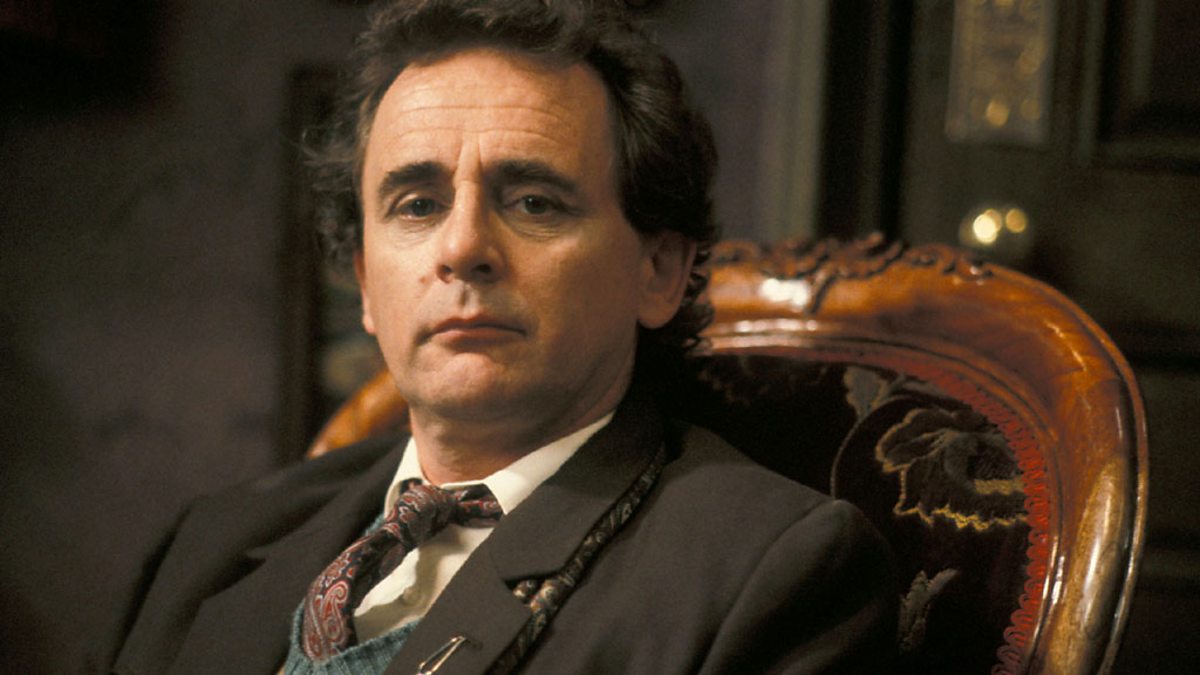
The Seventh Doctor era is much-loved by many Doctor Who fans, despite the fact that it signalled the end of the Classic Series with the BBC axing the programme in 1989. It grew out of a somewhat chaotic time, with the sudden departure of the Sixth Doctor Colin Baker, as well as the show’s long-term script editor Eric Saward. Arguably, it took some time for the show to ‘find its voice’ again, but there are some Seventh Doctor stories which are now considered among the greatest of all time.
So in a theoretical world, if we were to ask an artificial intelligence (or AI) to devise a new Seventh Doctor adventure based on all the best parts of his other stories, what would it suggest?
Well, it would be impossible to answer this question without considering the input of the late 80s script editor Andrew Cartmel. He succeeded Eric Saward and oversaw the scripts for the entirety of Sylvester McCoy’s era.
One of the key things that Cartmel was keen to re-establish was the mystery of this alien traveller with a dimensionally transcendental police box. This meant teasing out parts of his backstory, and introducing new elements into the lore.
A good Seventh Doctor story, then, would probably reaffirm some of the Time Lord’s enigma, and perhaps throw in a few breadcrumbs to intrigue fans. This was certainly true of one of the most popular Seventh Doctor adventures – ‘Remembrance of the Daleks‘ by Ben Aaronovitch. In the story, the Doctor revisits the location of one of his previous stories to retrieve something he left behind – in this case, the Hand of Omega, a stellar manipulation device from the Doctor’s home planet of Gallifrey.
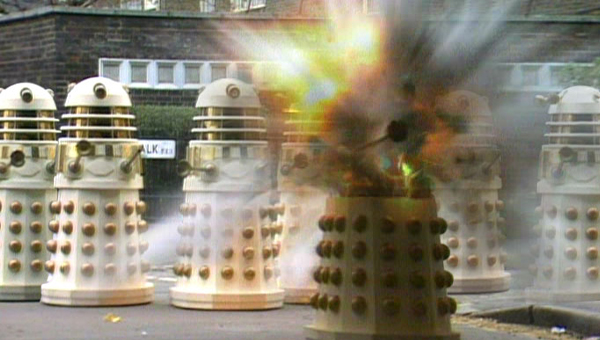
Naturally, his companion Ace wants to know how he got it and why the Daleks want it, but mysteriously the Doctor parses some of her questions, hinting only that he played some part in the development of the Time Lords’ time travel technology alongside the key players Rassilon and Omega.
These moments are fleeting in ‘Remembrance of the Daleks’ but they do titillate and intrigue; the show is called Doctor Who, after all.
But moving on from his backstory, there is also the mystery of the Seventh Doctor’s manipulative, darker nature, something that really came to the fore in his later stories. In ‘Ghost Light,’ for example, the Doctor tricks Ace into revisiting to one of her most traumatic childhood memories – Gabriel Chase, a creepy house that she burned to the ground when she was a teenager. And then there is the moment in ‘Remembrance of the Daleks’ when the Doctor manipulates one of the Daleks into taking its own life.
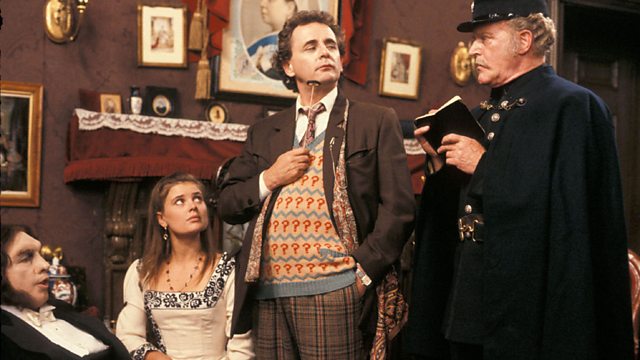
There is a running theme, therefore, of the Seventh Doctor playing the ‘puppet master’ in many of his adventures, and this would surely be a key element to draw upon when designing the perfect Seventh Doctor story. Indeed, in the 1989 adventure ‘The Curse of Fenric,’ the Doctor and the eponymous villain are attempting to out-manoeuvre each other as if playing an elaborate game of Chess. Fenric, it turns out, has been playing a long game with his enemy, causing a storm which brought the Time Lord into contact with one of his “wolves” (his companion Ace) on the frozen planet of Iceworld, slowly luring the Doctor into his trap.
The Doctor, of course, has been well aware of Fenric’s string-pulling, and has been pulling some strings of his own. In their confrontation at the end of ‘The Curse of Fenric,’ the Doctor manipulates Ace into losing her belief in him, breaking the psychic barrier that was preventing the Ancient One from stepping forward and destroying Fenric.
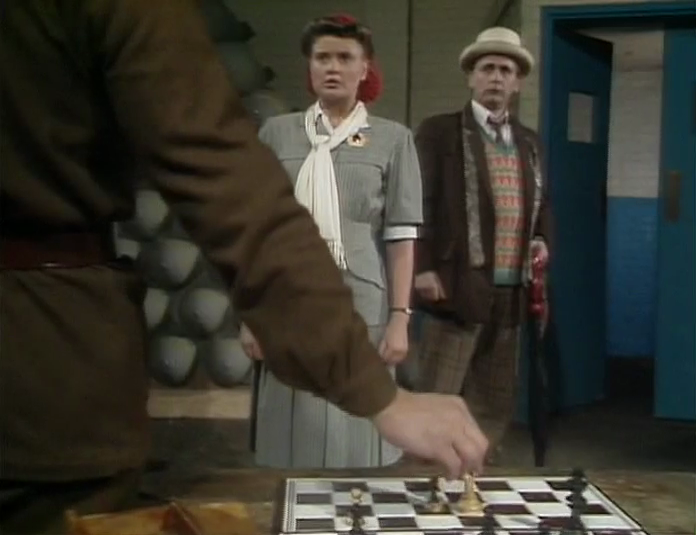
It’s complicated, but then so is ‘Ghost Light.’ In fact, some of the best Seventh Doctor stories have been complex enough that they almost invite viewers to watch them multiple times, conscious (perhaps) of the growing VHS generation who would record shows for repeat viewings.
Then there is the emotional heart at the centre of many Seventh Doctor adventures. ‘The Curse of Fenric’ is a great example of this, as Ace is forced to confront the troubled relationship with her mother. And then there is ‘Ghost Light’ when she revisits the site of a troubling memory which prompts her to address some of her deepest fears.
Some of the best Seventh Doctor stories, therefore, have been character-led, be it Ace’s character or the Doctor’s, or both. These adventures were not afraid to portray the reality of people’s emotions and their consequences, and use them to drive the story forward.
‘The Curse of Fenric’ is another good example of this when the Seventh Doctor and Ace are faced with the common problem of having to ‘distract the guard.’ In Doctor Who stories gone by, the companion might have shouted “oi, over here!” or thrown a pebble at a dustbin. But Ace uses her sexuality, flirting with the guard to divert his attention. “Professor, I’m not a little girl,” she explains.
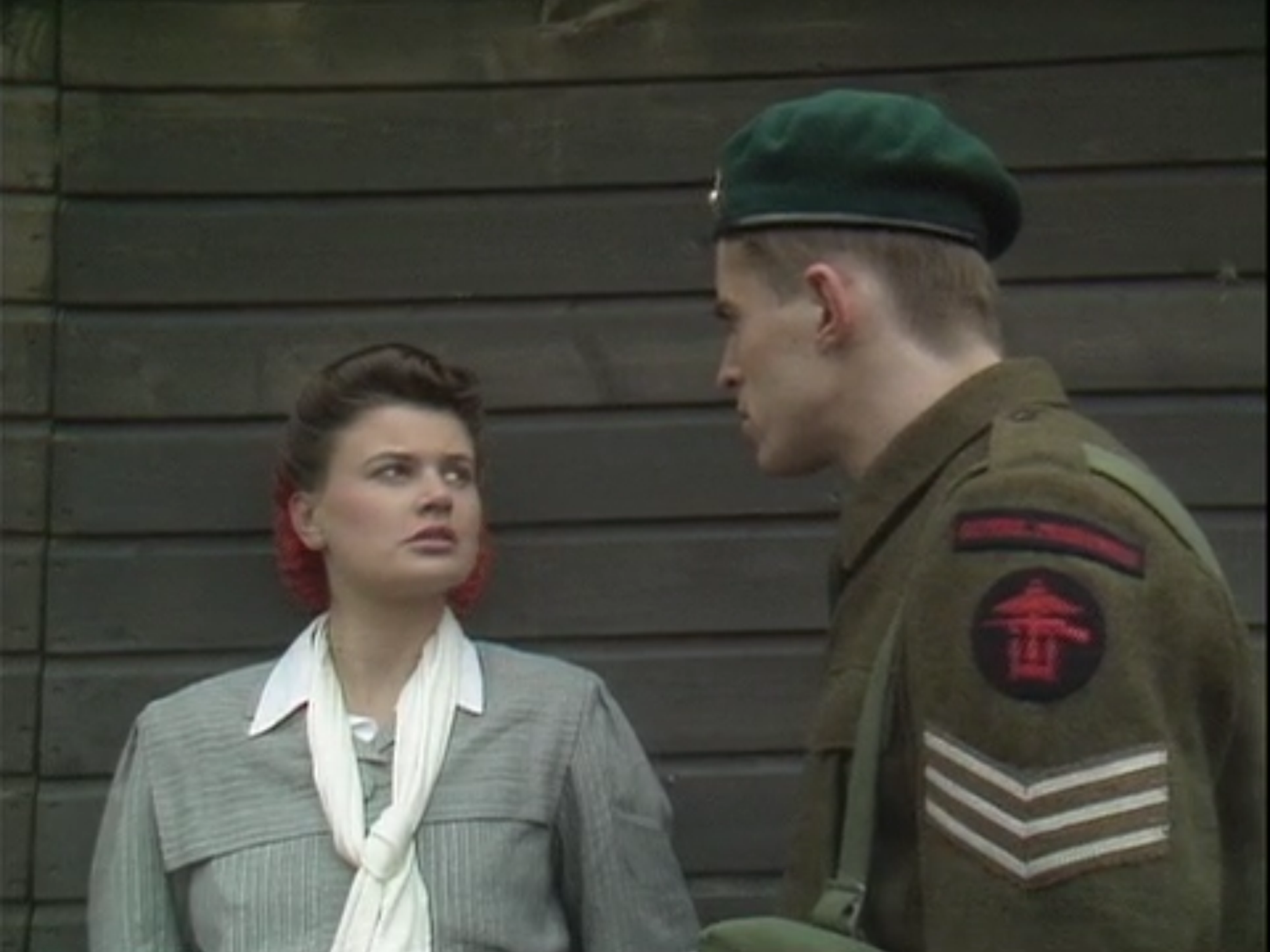
At the same time, this more realistic use of emotions to drive the narrative was often coupled with the gothic and the macabre, perhaps more so than any of the Doctor Who adventures that had gone before. In ‘The Greatest Show in the Galaxy,’ for example, the Doctor and Ace are confronted with a circus troupe of killer clowns. And in ‘The Happiness Patrol,’ they are pitted against a Liquorice All Sort monster called the Kandyman who invents sweets that are so delicious they kill people. And then there is the aforementioned ‘Ghost Light,’ which is all set within the creepy, dimly-lit hallways of a Victorian mansion.
As such, to make a good Seventh Doctor story, we would need a list of suitably horrific elements to provide the backdrop. At the same time, the viewer should have the sense that the Time Lord is secretly on top of everything throughout, even if they’re not quite sure what he’s planning or whose side he’s really on.
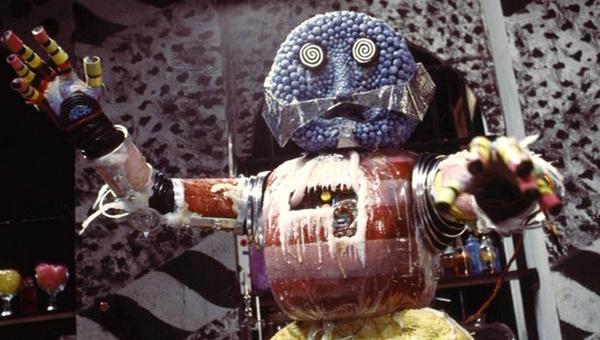
And ideally, the perfect Seventh Doctor adventure would (in some way) draw from or expand upon the Time Lord’s murky past, throwing just enough tantalising clues to keep driving home the question: who is Doctor Who? The 25th anniversary story ‘Silver Nemesis’ was a good example of this done well, and even ended on this exact question.
But over to you, internet. What ingredients do you think are essential for the perfect Seventh Doctor story? And which is your favourite of the Sylvester McCoy era? Let me know in the comments below.









Seventh Doctor takes Ace to a place to confront her fears (not what you would want a friend to do actually, as Sophie Aldred mentioned at a recent convention!), the Doctor impersonates someone, influences a militaristic operation, upsets the status quo of ‘an ancient evil’, has a rematch from a previously unseen adventure with a nemesis, wipes out an alien fleet, often using a bit of ancient Gallifrey kit, doesn’t explain his grand plan, walks off into the sunset (oh, and doesn’t have many TARDIS interior scenes — I think there were more in the telemovie than the duration of his entire BBC era!)